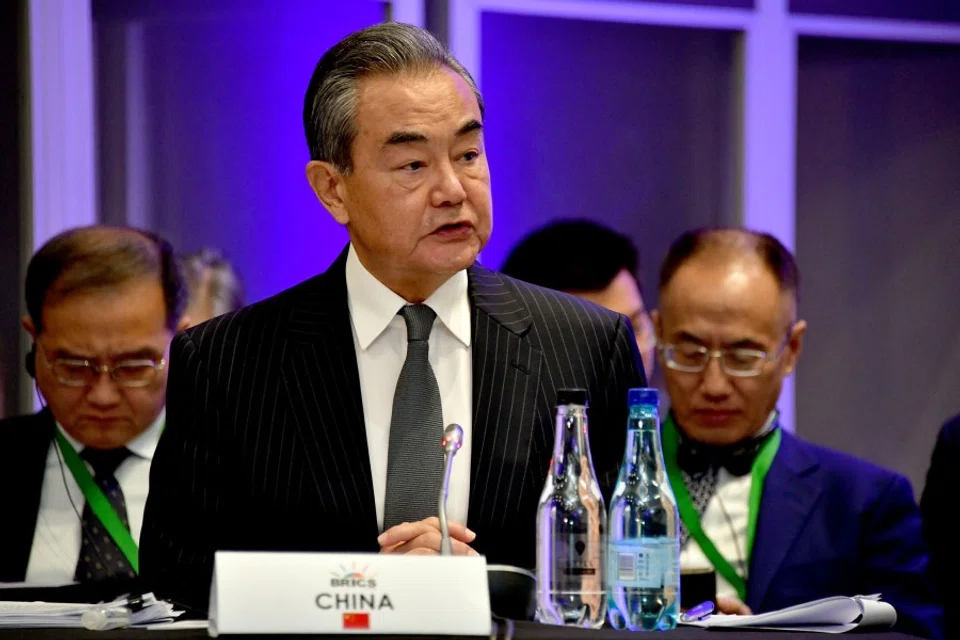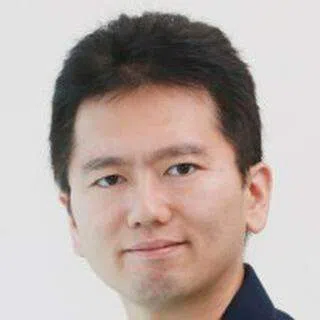Will China's measured stance continue under reappointed Foreign Minister Wang Yi?
Former Chinese Foreign Minister Qin Gang, who had a meteoric rise and just as swift a fall, was thought to have adopted a more measured tone in China's foreign policy. Are fears of a return to wolf warrior diplomacy under Wang Yi unfounded? Lianhe Zaobao correspondent Edwin Ong assesses the situation.

When then Chinese ambassador to the US Qin Gang returned to head the Chinese foreign ministry late last year, the new diplomatic team toned down its aggressive style and worked on the overall quality and professionalism of diplomacy. Under his helm, China gave goodwill signals to the US and strived to improve China's relations with Australia, bringing a breath of fresh air to international relations.
However, just six months into his role as foreign minister, Qin did a disappearing act, keeping out of the public eye since 25 June to much speculation. This youngest deputy state-level senior official was finally officially replaced on 25 July by the higher-ranked Wang Yi, who is also his predecessor.
After his reappointment as foreign minister on 25 July, Wang has become the highest-ranking Chinese foreign minister since reform and opening up.
Unlikely to change tenor of US-China engagement
Although China's foreign policy is not determined by the foreign minister, the outside world wonders if Wang will continue with the relatively measured diplomatic stance it has adopted since the start of the year. After all, during US Secretary of State Antony Blinken's visit to China in mid-June, Wang and Qin played bad cop and good cop respectively. Specifically, when Wang met Blinken on 19 June, he blamed the US's "misperceptions" of China as the "root cause" of the low point in China-US relations.
Following the Chinese Communist Party (CCP)'s 20th Party Congress in October last year, Wang entered the CCP Politburo and became a leader of both the party and the state. In December last year, he stepped down from his position as foreign minister and succeeded Yang Jiechi to become director of the Office of the Central Commission for Foreign Affairs. After his reappointment as foreign minister on 25 July, Wang has become the highest-ranking Chinese foreign minister since reform and opening up.

During Qin's month-long absence, 69-year-old Wang had already been filling in for Qin, such as heading to Jakarta to attend the two-day ASEAN foreign ministerial meetings. He had also met with the foreign ministers of the US, the UK, Australia, Japan, South Korea, and so on, ensuring that Chinese diplomacy was not affected by Qin's absence.
Just before Wang and Blinken's second meeting in a month at the ASEAN meetings, it was alleged that Chinese hackers were accused of hacking into the email accounts of key US government officials, putting China-US relations in a predicament again. Hoping to avoid a repeat of the balloon incident in February this year, Wang not only met with Blinken at the request of the latter but also urged the need for both sides to "start with specific steps to resolutely stop 'grey rhinos', properly handle 'black swans' and thoroughly remove 'tigers blocking the way', thus creating conditions and removing disruptions for stabilising China-US relations".
In the press releases following the meeting, both countries refrained from commenting on the hacking incident, demonstrating that they cherished the resumption of the hard-won high-level dialogue between both countries to ensure smooth communication channels.
Speaking about Wang's reappointment as Chinese foreign minister on 26 July, Blinken mentioned that he has known Wang for more than a decade and has met with him numerous times, adding that he anticipates "being able to work well with him, as we have in the past". As for Qin's removal from office, Blinken stressed that it was China's "sovereign decision" and that the US side stays committed to engaging with relevant Chinese officials to manage this bilateral relationship responsibly.

Blinken's reaction was bland, seemingly unsurprised by the change of China's foreign minister; it is possible that he had communicated with Wang Yi on the matter in mid-July. Despite their tense relations in the past, the interactions between the two over the past month suggest that China-US relations will not tank as it did after US Speaker Nancy Pelosi's visit to Taiwan.
Wang has also maintained close contact with US national security adviser Jake Sullivan through discreet special channels, meaning that China's new foreign minister has a direct channel to communicate differences with US President Joe Biden's left- and right-hand men.
Business as usual
On 13 July, during a meeting with Australian Foreign Minister Penny Wong in Jakarta, Wang affirmed the stabilisation of China-Australia relations and called on both sides to stay on track and not backtrack, evidently to reassure Australia.
As for Japan and South Korea, who have strengthened military alliances with the US this year, Wang continues to show goodwill, especially after Chinese ambassador to South Korea Xing Haiming criticised pro-US remarks made by the Moon Jae-in administration in June, sending China-South Korea relations to a low point.

On 3 July, Wang attended the International Forum for Trilateral Cooperation involving China, Japan and South Korea in Qingdao, Shandong, and called for the three countries to restart cooperation. Subsequently, he met separately with the foreign ministers of Japan and South Korea in Jakarta.
On 23 July, Kyodo News quoted several people in diplomatic circles saying that during a meeting on 14 July with Japanese Foreign Minister Yoshimasa Hayashi, Wang Yi proposed a high-level trilateral meeting between China, Japan, and South Korea, indicating Beijing's willingness to pave the way for the resumption of leadership dialogues among the three countries, which have been interrupted since December 2019.
On 14 July, Wang also met with the EU High Representative for Foreign Affairs and Security Policy Josep Borrell, who was originally scheduled to visit China on 10 July. Wang called on Europe to "promote China-EU relations to move forward on an existing basis. The EU should not waver, let alone encourage backpedaling words and deeds." In particular, he warned that both sides should "be vigilant against the politicisation and instrumentalisation of economic issues and the use of 'de-risking' as another synonym for 'decoupling and severing industrial and supply chains'."
... Wang met beforehand with senior officials from almost all major countries with diplomatic ties with China - probably no one was surprised at Wang coming back as foreign minister.
On the Russia-Ukraine conflict, Wang promised that China remains committed to talks for peace and to play a constructive role in a political settlement of the crisis.

On 24 July, Wang met with Nikolai Patrushev, secretary of the Security Council of the Russian Federation in Johannesburg, South Africa. He affirmed that China-Russia relations have withstood the test of international changes and become more mature, resilient and vigorous. He said China is ready to strengthen strategic communication with Russia and enhance strategic mutual trust, and "work together to oppose hegemonic and high-handed acts".
Clearly, Wang met beforehand with senior officials from almost all major countries with diplomatic ties with China - probably no one was surprised at Wang coming back as foreign minister. The signals he conveyed during these meetings were measured and steady, and it is expected that Borrell and British Foreign Secretary James Cleverly might soon restart their visits to China.
One major challenge that Wang might soon face is Taiwanese Vice-President William Lai's planned visit to Paraguay in mid-August, including a transit through the US. The manner and intensity of Beijing's response then will be of considerable interest.
This article was first published in Lianhe Zaobao as "秦刚去职后中国外交再调整?".



![[Photos] Fact versus fiction: The portrayal of WWII anti-Japanese martyrs in Taiwan](https://cassette.sphdigital.com.sg/image/thinkchina/3494f8bd481870f7c65b881fd21a3fd733f573f23232376e39c532a2c7593cbc)

